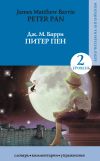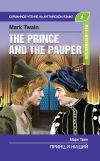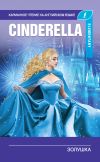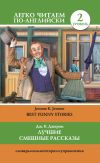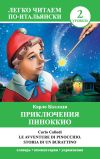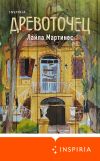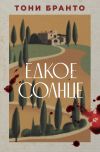Текст книги "Маленький принц / The Little Prince"
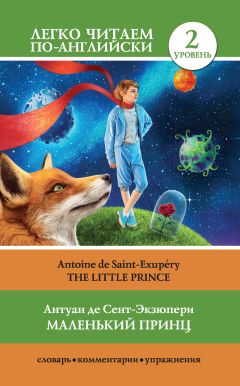
Автор книги: Антуан Сент-Экзюпери
Жанр: Иностранные языки, Наука и Образование
Возрастные ограничения: +6
сообщить о неприемлемом содержимом
Текущая страница: 1 (всего у книги 6 страниц) [доступный отрывок для чтения: 2 страниц]
Антуан де Сент-Экзюпери / Antoine de Saint-Exupéry
Маленький принц / The Little Prince
Иллюстрации Е.Д. Шавиковой
© Матвеев С.А., адаптация текста, коммент., упражнения и словарь, 2019
© Шавикова Е.Д., иллюстрации
© ООО «Издательство АСТ», 2019
1
Once when I was six years old I saw a magnificent picture in a book, called True Stories from Nature, about the primeval forest. It was a picture of a boa which was swallowing an animal. Here is a copy of the drawing:

In the book it said: “Boas swallow their prey whole, they do not chew it. After that they are not able to move, and they sleep through the six months that they need for digestion.”
I thought about it. And then I made my first drawing. My Drawing Number One. It looked like this:

I showed my masterpiece to the grown-ups, and asked them whether the drawing frightened them.
But they answered: “Frighten? Why can anyone be frightened by a hat?”
My drawing was not a picture of a hat. It was a picture of a boa which was digesting an elephant. But the grown-ups were not able to understand it. They always needed explanations. So I made another drawing: I drew the inside of the boa. This time the grown-ups could see it clearly. My Drawing Number Two looked like this:

The grown-ups advised me not to draw the boas from the inside or the outside, and study geography, history, arithmetic, and grammar. That is why, at the age of six, I stopped drawing. So I did not become a famous painter. I was disheartened by the failure of my Drawing Number One and my Drawing Number Two. Grown-ups never understand anything by themselves, and it is tiresome for children to explain things to them all the time.
So I chose another profession, and became a pilot. I flew over all parts of the world; and it is true that geography was very useful to me. Now I can distinguish China from Arizona.
I have met many people. I lived among grownups. I saw them intimately, and that did not improve my opinion of them.
When I met one of them who seemed clever enough to me, I tried to show him my Drawing Number One. I tried to learn, so, if this person had true understanding. But he—or she—always said,
“That is a hat.”
Then I did not talk to that person about boas, or forests, or stars. I talked to him about bridge, and golf, and politics, and ties.
2
So I lived my life alone and had no one to talk to, until I had an accident with my plane in the Desert of Sahara, six years ago. Something broke in my engine. And I had with me neither a mechanic nor any passengers. So I began to repair it all alone. It was a question of life or death for me: I had very little drinking water.
The first night, I went to sleep on the sand, a thousand miles away from any town. I was more isolated than a sailor on a raft in the middle of the ocean. Thus you can imagine my amazement, at sunrise, when I was awakened by an odd little voice. It said:
“Will you please draw me a sheep!”
“What!”
“Draw me a sheep!”
I jumped to my feet and looked carefully all around me. And I saw a most extraordinary small person who stood there. He was examining me with great seriousness.
Remember, I crashed in the desert a thousand miles from any town. The child did not seem hungry or thirsty or frightened. He was not looking like a child lost in the middle of the desert. When at last I was able to speak, I said to him:
“But—what are you doing here?”
And he repeated, very slowly:
“Will you please draw me a sheep.”
It was absurd: in danger of death he wanted me to draw a sheep! I could not disobey. I took out of my pocket a sheet of paper and my pen. But then I remembered that I was studying geography, history, arithmetic and grammar, and I told the boy that I did not know how to draw. He answered to me:
“That doesn’t matter[1]1
That doesn’t matter. – Это неважно.
[Закрыть]. Draw me a sheep.”
But I couldn’t. So I drew for him one of my drawings. It was the boa from the outside. And I was astounded to hear:
“No, no, no! I do not want an elephant inside a boa. A boa is very dangerous, and an elephant is very big. Where I live, everything is very small. What I need is a sheep. Draw me a sheep.”
So then I made a drawing.

He looked at it carefully, and then said:
“No. This sheep is very sickly. Make me another.”
So I made another drawing.

My friend smiled gently and indulgently.
“You see yourself,” he said, “that this is not a sheep. This is a ram. It has horns.”
So then I drew once more.

But it was rejected too, just like the others.
“This one is too old. I want a sheep that will live a long time.”
By this time my patience was exhausted, because I wanted to repair my engine. So I drew a simple box and explained:
“This is his box. Your sheep is inside.”

I was very surprised to see the face of my young judge:
“That is exactly what I wanted! Do you think that this sheep will need much grass?”
“Why?”
“Because where I live everything is very small.”
“There will be enough grass for him,” I said. “It is a very small sheep.”
He bent his head over the drawing.
“Not so small… Look! He went to sleep.”
And that is how I met the little prince.

3
It took me a long time[2]2
it took me a long time – у меня заняло много времени
[Закрыть] to understand where he came from. The little prince asked me many questions, but did not hear the questions I asked him.
The first time he saw my airplane, for instance (I shall not draw my airplane; it’s too complicated for me), he asked me:
“What is that object?”
“That is not an object. It flies. It is an airplane. It is my airplane.”
And I was proud to tell him that I could fly.
He cried out, then:
“What! You dropped down from the sky?”
“Yes,” I answered, modestly.
“Oh! That is funny!”
And the little prince began to laugh, which irritated me very much. Then he added:
“So you, too, come from the sky! Which planet is yours?”
At that moment I understood the mystery of his presence; and I demanded, abruptly:
“Do you come from another planet?”
But he did not reply. He tossed his head gently. He was looking at my plane:
“It is true that on that you can’t travel very far…”
You can imagine how my curiosity was aroused! I heard about the “other planets.” I tried to learn something more.
“My little man[3]3
little man – малыш
[Закрыть], where do you come from? What is this ‘where I live,’ of which you speak? Where do you want to take your sheep?”
After a while he answered:
“It is very good that you gave me the box. The sheep can use it as his house.”
“That is so. And if you are good I will give you a string, too, so that you can tie him during the day, and a post to tie him to.”
But the little prince seemed shocked:
“Tie him! What a queer idea!”
“But if you don’t tie him,” I said, “he will wander off[4]4
to wander off – забрести
[Закрыть] somewhere, and get lost[5]5
to get lost – потеряться
[Закрыть].”
My friend laughed loudly:
“But where do you think he can go?”
“Anywhere. Straight ahead of him.”
Then the little prince said, earnestly:
“That doesn’t matter. Where I live, everything is so small!”
And, with sadness, he added:
“Straight ahead of him, nobody can go very far.”
4
Thus I learned an important fact: the little prince’s planet was no larger than a house!
But that did not really surprise me much. I knew very well that in addition to the great planets to which we gave names—such as the Earth, Jupiter, Mars, Venus—there are also hundreds of others. Some of them are very small. It’s hard to see them even through the telescope. When an astronomer discovers one of these he does not give it a name, but only a number. He might call it, for example, “Asteroid 325”.
I have serious reason to believe that the planet from which the little prince came is the asteroid known as B-612. This asteroid was seen through the telescope only once, by a Turkish astronomer, in 1909. He had presented it to the International Astronomical Congress. But he was in Turkish costume, and so nobody believed what he said.
Grown-ups are like that.
Fortunately, however, in 1920 the astronomer gave his presentation again, dressed in European costume. And this time everybody accepted his report.
Why do I tell you these details about the asteroid? Because I want to talk about the grown-ups. When you tell them that you have a new friend, they never ask you any important questions. They never say to you, “What does his voice sound like? What games does he like? Does he collect butterflies?” Instead, they demand: “How old is he? How many brothers has he? How much does he weigh? How much money does his father make?” Only from these figures they think they learn anything about him.
If you say to the grown-ups: “I saw a beautiful house made of rosy brick, with geraniums in the windows and doves on the roof,” they won’t have any idea of that house at all. You must say: “I saw a house that cost $20,000.” Then they will exclaim: “Oh, what a pretty house that is!”
Just so, you may say to them: “The proof that the little prince existed is: he was charming, he laughed, and he was looking for a sheep. If anybody wants a sheep, that is a proof that they exist.” And what will they do? They will shrug their shoulders, and say that you are a child. But if you say to them: ““The planet he came from is Asteroid B-612,” then they will be convinced.
They are like that. Children must always show great forbearance toward grown-up people.
But certainly, for us—who understand life—figures are very important. I shall begin this story like a fairy-tale. I want to say: “Once upon a time[6]6
once upon a time – однажды
[Закрыть] there was a little prince. He lived on a planet that was very small and he needed a sheep.”
To those who understand life, that will seem like a true story. Because I do not want anyone to read my book carelessly. I suffered much to write down these memories. Six years passed since my friend went away from me, with his sheep. And I try to describe him here, because I do not want to forget him. To forget a friend is sad. Not every one has a friend. And if I forget him, I may become like the grownups who are not interested in anything but figures.
It is for that purpose that I bought a box of paints and some pencils. It is hard to draw again at my age. I never made any pictures except those of the boa from the outside and the boa from the inside. I made these drawings when I was six. I shall certainly try to make my portraits as true as possible. But I am not sure of success. I make some errors, too, in the little prince’s height: in one place he is too tall and in another too short. And I feel some doubts about the colour of his costume.
In certain more important details I shall make mistakes, also. But that is something that will not be my fault. My friend never explained anything to me. He thought, perhaps, that I was like himself. But I, alas, do not know how to see sheep through the walls of boxes. Perhaps I am a little like the grown-ups. Maybe I grew old[7]7
to grow old – стареть
[Закрыть].
5
As each day passed I learned, in our talk, something about the little prince’s planet and his departure from it, his journey. The information came very slowly. On the third day I heard about the catastrophe of the baobabs.
This time, once more, I thanked the sheep for it. For the little prince asked me abruptly:
“It is true, isn’t it, that sheep eat little bushes?”
“Yes, that is true.”
“Ah! I am glad!”
I did not understand why it was so important that sheep can eat little bushes. But the little prince added:
“Do they also eat baobabs?”
I noted that baobabs were not little bushes, but, on the contrary, were trees as big as castles; and that even if he takes a whole herd of elephants away with him, the herd cannot eat up one single baobab.
The idea of the herd of elephants made the little prince laugh.
“We will put them one on top of the one another[8]8
to put them one on top of one another – поставить их друг на друга
[Закрыть],” he said.
But then he made a wise comment:
“Before they grow so big, the baobabs are little.”
“That is correct,” I said. “But why will the sheep eat the little baobabs?”
He answered me at once, “Oh, come, come![9]9
Oh, come, come! – А как же!
[Закрыть]” And I made a great mental effort to solve this problem, without any assistance.
Indeed, as I learned, that on the planet where the little prince lived there were—as on all planets—good plants and bad plants. So there were good seeds from good plants, and bad seeds from bad plants. But the seeds were invisible. They sleep deep in the heart of the earth’s darkness, until a little seed desires to wake. Then this little seed will stretch itself and begin—timidly at first—to push a little sprig upward toward the sun. If it is only a sprout of radish or the sprig of a rose-bush, let it grow. But when it is a bad plant, one must destroy it as soon as possible[10]10
as soon as possible – как можно скорее
[Закрыть].
Now there were some terrible seeds on the planet that was the home of the little prince; and these were the seeds of the baobab. The soil of that planet was infested with them. A baobab is something you will never, never be able to get rid of[11]11
to get rid of – избавиться
[Закрыть] if you see it too late. It spreads over the entire planet. And if the planet is too small, and the baobabs are too many, they split it in pieces.
“It is a question of discipline,” the little prince said to me. “When you finish your own toilet in the morning, then it is time to attend to the toilet of your planet, just so, with the greatest care. You must check all the baobabs regularly. It is very tedious work,” the little prince added, “but very easy.”
And one day he said to me: “You must make a beautiful drawing. The children where you live must see exactly how all this is. That will be very useful to them. Baobabs always mean a catastrophe. I knew a planet, a lazy man lived there. He neglected three little bushes.”
So the little prince described it to me. And I made a drawing of that planet. I do not want to be a moralist, but very few people understand the danger of the baobabs. So, children—watch out for the baobabs![12]12
watch out for the baobabs! – берегитесь баобабов!
[Закрыть]

6
Oh, little prince! I understand the secrets of your sad little life. For a long time your only entertainment was looking at the sunset. I learned that new detail on the morning of the fourth day, when you said to me:
“I am very fond[13]13
I am very fond – я очень люблю
[Закрыть] of sunsets. Come, let us go look at a sunset now.”
“But we must wait,” I said.
“Wait? For what?”
“For the sunset. We must wait until it is time.”
At first you were very much surprised. And then you laughed to yourself. You said to me:
“I always think that I am at home!”
Just so. Everybody knows that when it is noon in the United States the sun is setting over France.
If you fly to France in one minute, you will go straight into the sunset, right from noon. Unfortunately, France is too far away for that. But on your tiny planet, my little prince, you can just move your chair a few steps. You can see the day end and the twilight whenever you like.
“One day,” you said to me, “I saw the sunset forty-four times!”
And later you added:
“You know—one loves the sunset, when one is so sad.”
“Were you so sad, then?” I asked, “On the day of the forty-four sunsets?”
But the little prince made no reply.
7
On the fifth day—again, as always, thanks to the sheep—the secret of the little prince’s life was revealed to me. Abruptly he demanded:
“A sheep—if it eats little bushes, does it eat flowers, too?”
“A sheep,” I answered, “eats anything.”
“Even flowers that have thorns?”
“Yes, even flowers that have thorns.”
“Then the thorns—what use are they?[14]14
what use are they? – какая от них польза?
[Закрыть]”
I did not know. At that moment I was very busy: I was trying to unscrew a bolt in my engine. I was very much worried; the breakdown of my plane was extremely serious. And I had so little drinking water.
“The thorns—what use are they?” The little prince insisted. As for me, I was upset over that bolt. And I answered with the first thing that came into my head:
“The thorns are of no use at all. Flowers have thorns just for spite![15]15
just for spite – просто от злости
[Закрыть]”
“Oh!”
There was a moment of complete silence. Then the little prince said:
“I don’t believe you! Flowers are weak creatures. They are naive. They believe that their thorns are terrible weapons.”
I did not answer. At that instant I was saying to myself: “If this bolt still won’t turn, I am going to knock it out with the hammer.” Again the little prince disturbed my thoughts:
“And you actually believe that the flowers—”
“Oh, no!” I cried. “No, no, no! I don’t believe anything. I answered you with the first thing that came into my head. Don’t you see—I am very busy with matters of consequence[16]16
matters of consequence – серьёзное дело
[Закрыть]!”
He looked at me, thunderstruck.
“Matters of consequence!”
He looked at me there, with my hammer in my hand, my fingers black with engine-grease.
“You talk just like the grown-ups!”
I was a little ashamed. But he went on, relentlessly:
“I know a planet where there is a certain red-faced gentleman. He never smelled a flower. He never looked at a star. He never loved anyone. He never does anything in his life, he just adds up figures. And all day he says over and over, just like you: ‘I am busy with matters of consequence!’ And he is very proud. But he is not a man—he is a mushroom!”
“A what?”
“A mushroom!”
The little prince was now white with rage.
“The flowers have thorns. It lasts for million years. And they eat them all the time. And is it not a matter of consequence to try to understand why the flowers have so much trouble to grow thorns which are never of any use to them? Is the war between the sheep and the flowers not important? Is this not more important than a fat red-faced gentleman’s sums? And if I know—I, myself—one flower which is unique in the world, which grows nowhere but on my planet, but which one little sheep can destroy some morning—Oh! You think that is not important!”
His face turned from white to red. He continued:
“If someone loves a flower, it is enough to make him happy just to look at the stars. He can say to himself, ‘Somewhere, my flower is there.’ But if the sheep eats the flower, in one moment all his stars will be darkened. And you think that is not important!”
He did not say anything more. He began to sob.
The night came. My tools dropped from my hands. What does it matter—my hammer, my bolt, or thirst, or death? On one star, one planet, my planet, the Earth, there was a little prince. I took him in my arms. I said to him:
“The flower that you love is not in danger. I will draw you a muzzle for your sheep. I will draw you a railing for your flower. I will—”
I did not know what to say to him. I felt awkward. It is such a secret place, the land of tears.
8
I soon knew this flower better. On the little prince’s planet flowers were very simple. They had only one ring of petals; they were a trouble to nobody. One morning they appeared in the grass, and at night they faded away peacefully. But one day, from a seed, a new flower came up; and the small sprout was not like any other small sprouts on his planet.
The shrub soon stopped to grow, and began to produce a flower. And the flower was preparing her beauty in the shelter of her green chamber. She chose her colours with the greatest care. She dressed herself slowly. She adjusted her petals one by one. She wished to appear in the full radiance of her beauty. Oh, yes! She was a coquettish creature!
Then one morning, exactly at sunrise, she suddenly showed herself. She yawned and said:
“Ah! I am scarcely awake. I think that you will excuse me. My petals are still all disarranged.”
But the little prince could not restrain his admiration:
“Oh! How beautiful you are!”
“Am I not?” the flower responded, sweetly. “And I was born at the same moment as the sun.”
The little prince guessed easily that she was not very modest. But how exciting she was!
“I think it is time for breakfast,” she added an instant later.
And the little prince, completely abashed, brought a sprinkling-can[17]17
sprinkling-can – лейка
[Закрыть] of fresh water. So, he watered the flower.
So, too, she began very quickly to torment him with her vanity. One day, for instance, when she was speaking of her four thorns, she said to the little prince:
“Let the tigers come with their claws!”
“There are no tigers on my planet,” the little prince objected. “And, anyway, tigers do not eat weeds.”
“I am not a weed,” the flower replied, sweetly.
“Please excuse me.”
“I am not at all afraid of tigers,” she went on, “but I have a horror of drafts[18]18
drafts – сквозняки
[Закрыть]. I suppose you have a screen for me?”
“A horror of drafts—that is bad luck, for a plant,” remarked the little prince, and added to himself, “This flower is a very complex creature.”
“At night, please put me under a glass globe. It is very cold where you live. In the place I came from—”
But she interrupted herself at that point. She came in the form of a seed. She did not know anything of any other worlds. Embarassed, she coughed two or three times.
“So, the screen?”
“I was just going to look for it when you spoke to me.”
So the little prince, in spite of all the good will, soon came to doubt her. He took seriously words which were without importance, and it made him very unhappy.
“There was no need to listen to her,” he told me one day. “No need to listen to the flowers. One can simply look at them and breathe their fragrance. My flowers perfumed all my planet. But I did not know how to enjoy her grace.”
And he continued his confidences:
“The fact is that I did not know how to understand anything! Judge by deeds[19]19
by deeds – по делам
[Закрыть] and not by words[20]20
by words – по словам
[Закрыть]. She cast her fragrance and her radiance over me. But I ran away from her. Flowers are so inconsistent! I was too young to know how to love her.”
Правообладателям!
Данное произведение размещено по согласованию с ООО "ЛитРес" (20% исходного текста). Если размещение книги нарушает чьи-либо права, то сообщите об этом.Читателям!
Оплатили, но не знаете что делать дальше?